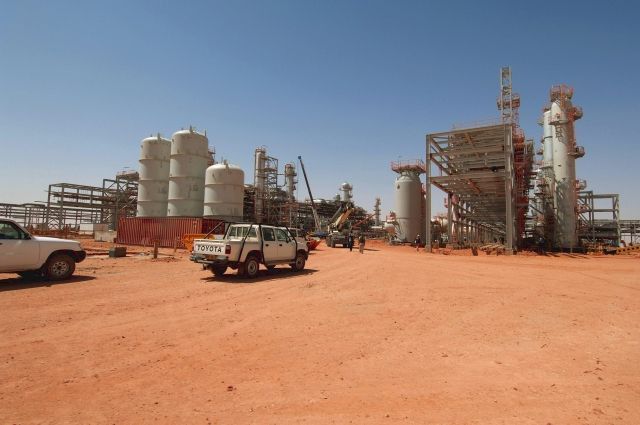Algeria Hostage Crisis: Nobody Knows Anything

Mystery and confusion reigns over the hostage and siege crisis at a gas complex in the eastern desert of Algeria.
More than 36 hours after Islamic militants linked to al Qaeda raided an energy plant near the Libyan border, conflicting reports about the number of foreign workers who have been killed or escaped has sparked criticism of Algerian state authorities.
Al-Jazeera reported that at least 30 hostages and 11 militants were killed during the siege of the gas facility by the Algerian military. Algerian security officials said the dead hostages included eight Algerians and seven foreigners, including two Britons, two Japanese and a French citizen.
However, a spokesman for the militants told Mauritania’s ANI news agency that 35 hostages and 15 militants were killed in Thursday's raid -- figures denied by Algerian officials.
About 600 hostages, primarily Algerians, had been released earlier by the captors, according to Algeria's APS news agency, while other plant workers (presumably foreign nationals) escaped the locale amid the chaos of the raid and abduction. At least one westerner, Stephen McFaul from the Republic of Ireland, was among foreigners who were released.
Al-Jazeera noted that at least 22 hostages remain missing.
Meanwhile, despite claiming earlier that the stand-off had ended, Algerian sources are stating that hundreds of hostages remain trapped inside the facility -- their fates unknown.
A group calling itself the Masked Brigade, led by a man named Mokhtar Belmokhtar, seized the compound on Wednesday allegedly to protest France’s military intervention in neighboring Mali. Belmokhtar was formerly a senior commander with al Qaeda in the Maghreb, or AQIM.
"We hold the Algerian government and the French government and the countries of the hostages fully responsible if our demands are not met, and it is up to them to stop the brutal aggression against our people in Mali,” read a statement by the kidnappers to Mauritanian media.
Foreign nations are now piling on Algiers for their secretive behavior during the entire crisis.
British Prime Minister David Cameron took a pessimistic view of the drama, suggesting more bad news would follow. The British government noted that Algeria never informed it that the rescue raid on the gas plant had ever ended.
"The terrorist incident in Algeria remains ongoing," a spokesman for the UK Foreign Office said.
Japan explicitly condemned the Algerian military for the raid on the gas complex; its foreign ministry summoned the Algerian ambassador to explain the unilateral rescue operation.
"There is still much confusion in the information, but we are receiving reports of casualties,” Yoshihide Suga, the chief cabinet secretary, said. "We deeply regret the actions taken by the Algerian military."
"Parts of the plant are under Algerian authorities' control, and other parts are not," Norwegian Foreign Minister Espen Barth Eide told the BBC. "This information is changing by the hour.”
“This was one of the most complex hostage situations seen in many years -- one in which hopes for a simple, bloodless resolution always looked optimistic," Gordon Corera, security correspondent for the BBC, commented. "The combination of a remote site in the desert, heavily armed militants, explosives at a gas facility and a kaleidoscope of nations with their citizens held hostage was always a volatile cocktail. However, there will still be questions about Algeria's decisions, particularly its reported reluctance to accept any advice or assistance.”
© Copyright IBTimes 2024. All rights reserved.





















